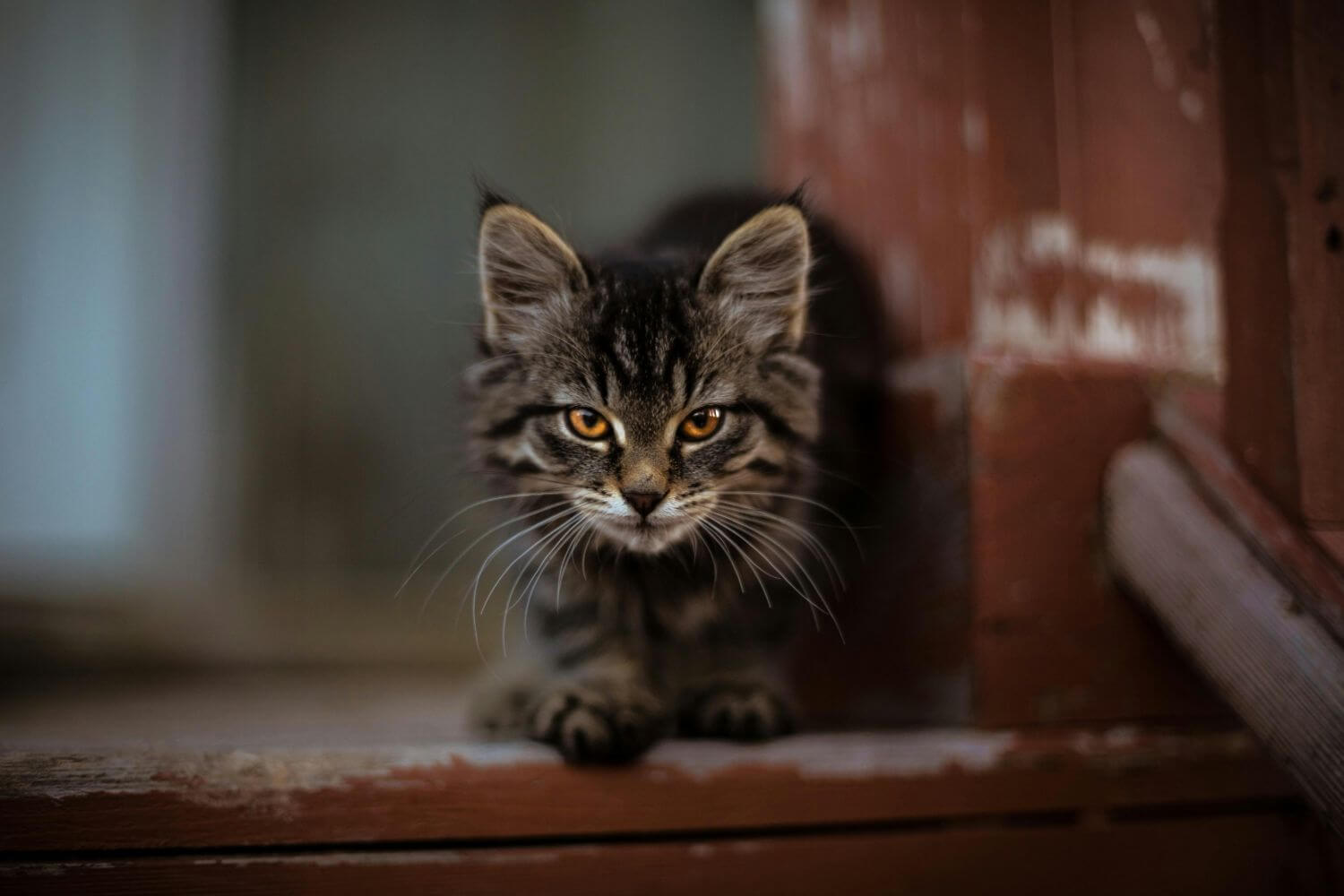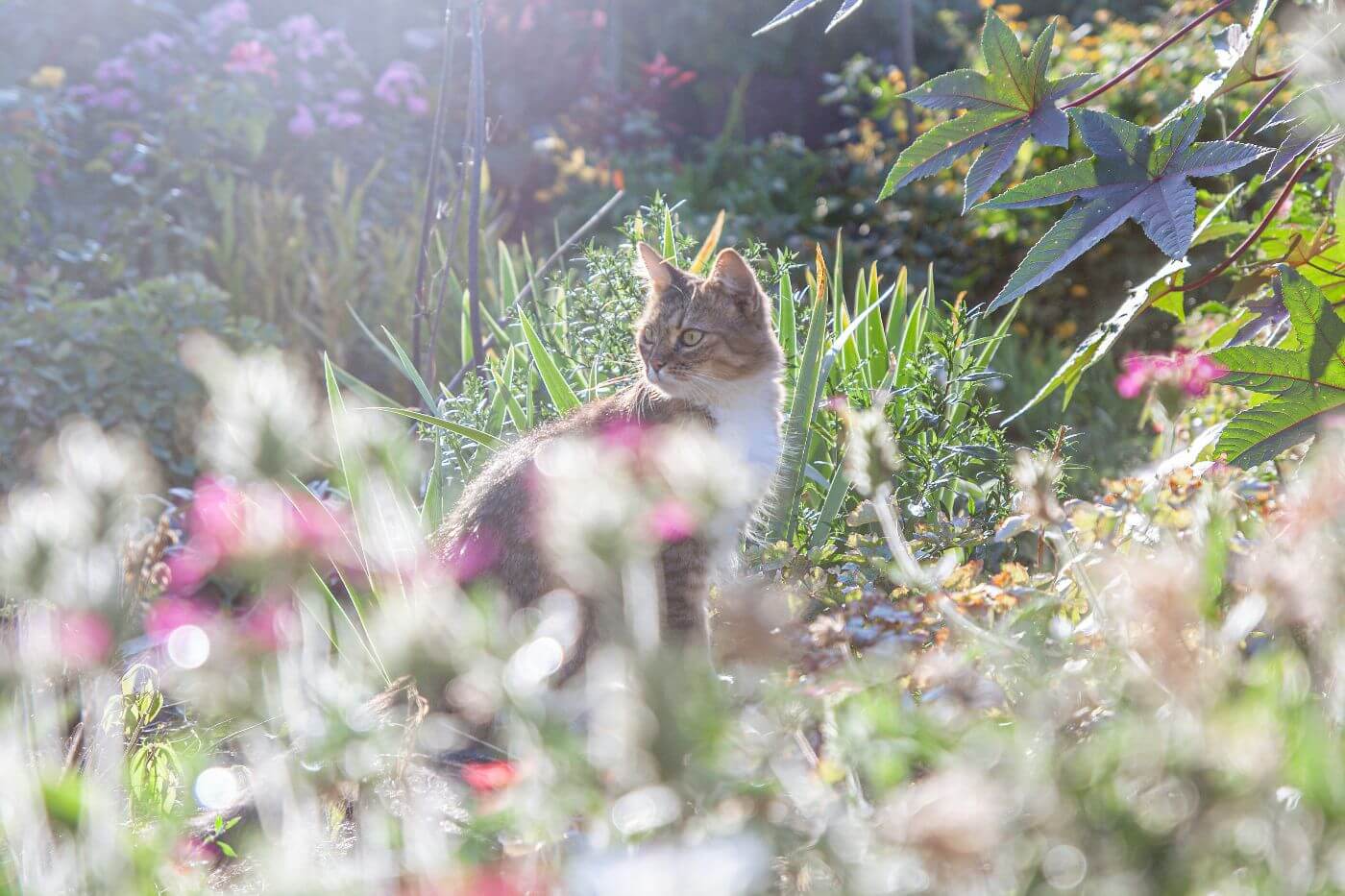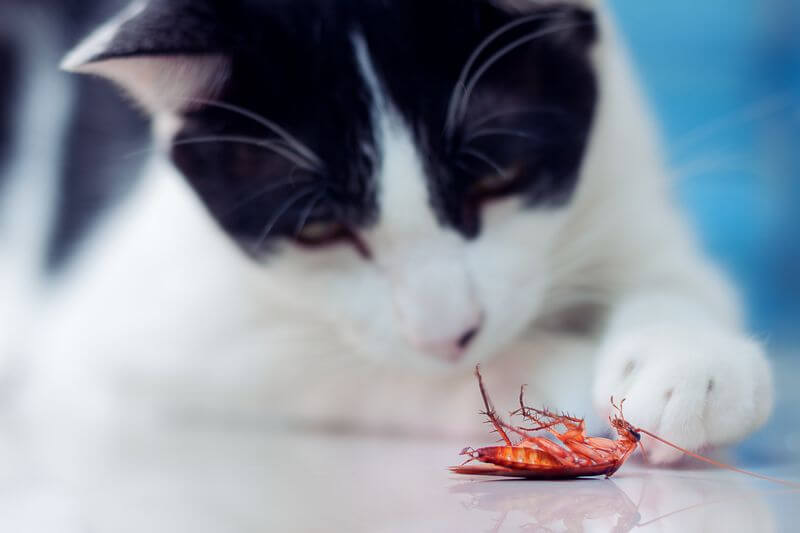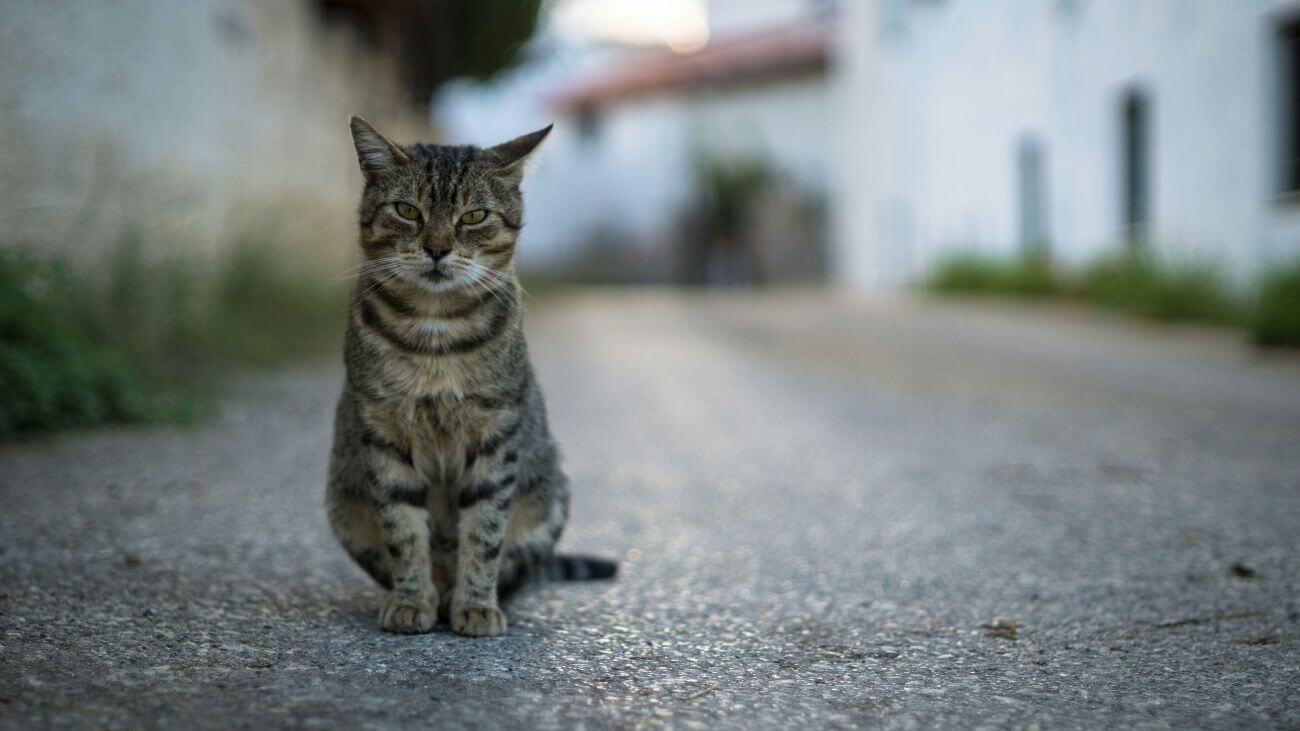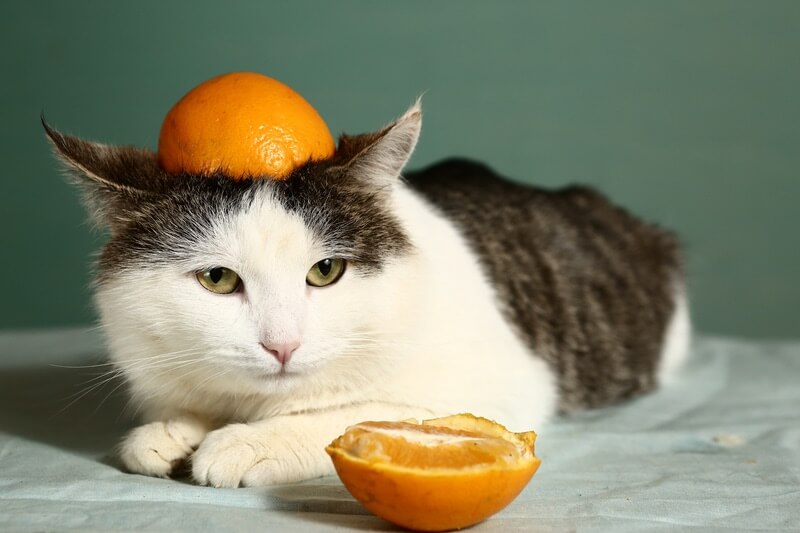Ever wonder why your cat runs away when you spray that citrus cleaner? Cats have incredibly powerful noses with 200 to 300 million smell receptors compared to our measly 5 to 6 million. This super sense of smell means they experience scents much more intensely than we do.
Understanding what smells cats hate can be a game changer. Whether you need to keep your furry friend off the kitchen counter, protect your garden from neighborhood cats, or stop scratching on your favorite furniture, knowing which scents repel cats gives you natural, safe tools to manage these common problems.
1. Mint Makes Cats Turn Away Fast
- Plant-based peppermint oil formula repels pests naturally
- Safe to use around pets, kids, and indoor living spaces
- Great for garages, attics, baseboards, and outdoor areas
- Fresh mint scent with long-lasting protection
These plants are commonly known for their fresh fragrance, but cats hate such scents. In particular, peppermint and spearmint, as these tend to be the strongest. The menthol compounds in mint plants create an overwhelming sensory experience for cats.
Peppermint is one of the easiest herbs to grow in a home garden. There are other kinds of mint besides peppermint that cats also hate, including spearmint, pennyroyal, apple mint, water mint, and several others.
For indoor deterrents, you can use cotton balls dabbed with a tiny amount of peppermint extract (not essential oil) and place them in problem areas. Cat repellers agree that diluting mouthwash in a spray bottle with water simulates the mint smell cats don’t like.
Safety warning: Peppermint and other types of mint are toxic to cats, and it’s better to put mint plants in pots around your home and avoid using essential oils. Keep the plants where cats can smell them but not easily eat large quantities.
2. Citrus Scents Make Cats Run for the Hills
Cats dislike the acidic smell of citrus fruits, and citrus smells are widely reported as being repugnant to cats. The oils from oranges, lemons, limes, and grapefruits contain compounds that are overwhelming to their sensitive noses and can actually be toxic if consumed.
The easiest way to use citrus as a cat deterrent is by saving your orange and lemon peels. You can use this to your advantage by throwing orange peels around your garden to keep cats away or spritzing a citrus scent on indoor fabric that you don’t want your cat scratching up.
For a DIY citrus spray, add chopped citrus peel to a medium pot, pour boiling water over it, keep the pot on low heat and allow the mixture to simmer for 15 minutes, then cool and strain through a sieve. Add some lemon juice and a few drops of citrus-scented dish soap for extra power.
Safety tip: Citrus fruits are considered edible for cats although most of them probably won’t be interested, but the skins and plant material may cause vomiting, diarrhea, or dermatitis. Stick to using real peels rather than essential oils, which can be much more dangerous.
3. White Vinegar Creates an Invisible Barrier
Most cats dislike the smell of vinegar because of its strong scent, and white distilled vinegar is perfect for completely overwhelming your cat’s sense of smell. The sour, acidic smell hits their powerful noses like a wall, making it one of the most reliable deterrents.
To use white vinegar as a cat repellent, mix a one-to-one ratio with water, and put it in a plastic spray bottle. This mixture works great for keeping cats off kitchen counters, away from furniture, or out of specific areas in your garden.
The best part about vinegar is that it’s completely safe for cats when diluted properly. Yes, vinegar can be used as a natural cat deterrent. Its strong, pungent smell is unpleasant for cats, making it effective for keeping them away from certain areas. However, it is not harmful to cats and can also be used to neutralize odors from cat urine and feces.
Pro tip: Apple cider vinegar doesn’t work nearly as well as white vinegar for repelling cats, so stick with the clear stuff for best results.
4. Coffee Grounds Pack a Powerful Punch
Coffee grounds work quite well as cats despise the smell of coffee grounds and will stay as far away as they can. The strong, bitter aroma seems to trigger an instinctive avoidance response, possibly because cats sense that caffeine is toxic to them.
You can sprinkle the grounds around your garden or put some in a small dish and place it wherever you want your cats to avoid. Used coffee grounds work best because they’re not as acidic as fresh ones, which could harm your plants.
Important safety warning: Caffeine ingestion can become an issue, so you should be careful if you use it in your garden. Since they won’t eat it, using safely sourced coffee grounds to keep cats out of your garden or off countertops works quite well, but make sure to keep piles small and scattered so curious cats don’t try to investigate too closely.
Bonus benefit: Coffee grounds also work as fertilizer for your plants, adding nitrogen and other nutrients to the soil.
5. Lavender Looks Pretty but Cats Hate It
Cats seem to hate the smell of lavender since the strong scent can be too much for them. Where possible, they will avoid lavender plants since they hate the smell. The compounds linalool and camphor in lavender are particularly overwhelming to their sensitive noses.
Lavender plants can also be used as a natural repellent in your garden for cats. Most cats won’t want to spend too much time in an area where the smell of lavender is overwhelming. Plant it around garden borders or use dried lavender sachets indoors for a gentle deterrent effect.
Double duty bonus: Lavender doesn’t just repel cats. It also keeps mosquitoes, flies, and other pests away while making your garden smell amazing to humans.
Safety note: Lavender, geranium, and eucalyptus are all somewhat toxic to cats; if ingested, they can cause excess salivation, nausea, vomiting, anorexia, depression, or dermatitis. Plant it where cats can smell it but not easily munch on it.
6. Rosemary is Safe and Super Effective
You can find rosemary in several culinary dishes, and it’s also in popular essential oils. While cats hate it, one of the good things about the herb is that it’s not toxic to felines. Cats despise the scent and texture of rosemary, which is due to the numerous essential oils present in its leaves.
To use rosemary as a cat deterrent, simply plant the easy-to-grow herb around your garden, or place potted rosemary plants around your home. For indoor use, you can make a simple spray by steeping fresh rosemary in hot water overnight, then straining the liquid into a spray bottle.
What makes rosemary special among smells that cats hate is its safety profile. According to the ASPCA, neither rosemary nor thyme is toxic to cats, so you can safely give them some and/or keep them in the house without worrying about your curious kitty getting into trouble.
Cooking bonus: Unlike many cat-repelling plants, you can actually use your rosemary deterrent plants in your cooking too. It’s a win-win situation.
7. Pine and Cedar Create Natural Barriers
Most cats will avoid the smell of pine or cedar woods, so keep this in mind if you plan to use it in their litterboxes. You can also place piles of pine or cedar needles, cones, or wood chips wherever cats enter your yard to keep them out. They will avoid the pine and cedar needles or cones because of the smell and because they’re uncomfortable to walk on.
If you have a problem with stray cats in your yard, planting pine and cedar trees or hedges around your property is an excellent deterrent. The woody, resinous scents contain phenolic compounds that irritate cats’ sensitive respiratory systems.
Double deterrent effect: Pine cones and cedar chips work both as scent deterrents and physical barriers since cats don’t like walking on prickly or uncomfortable surfaces.
Safety consideration: The kiln-dried varieties might be safer if there are no other harmful additives. Avoid dusty products that could irritate both you and your cats.
8. Eucalyptus is Too Intense for Cat Noses
The eucalyptus plant can actually make a cat feel worse and more stressed. The concentrated smell of eucalyptus essential oils is strong enough to cause irritation to your cat’s nasal passages, and even make their eyes feel like they are burning.
For outdoor deterrents, planting eucalyptus trees around your property creates a natural barrier. Likewise, geranium and eucalyptus plants give off an odor that cats dislike. The intensely aromatic leaves release oils that cats find completely overwhelming.
Critical safety warning: You should also never use eucalyptus oil to soothe a respiratory infection your cat may have or to try and open their airways. In fact, doing so can have the opposite effect and make your cat feel worse and more stressed. Never use eucalyptus essential oils in diffusers or sprays around cats.
Outdoor only: This is definitely one of those what smells cats hate that should only be used in outdoor spaces where cats can easily get away from the scent.
9. Common Rue Really Works
Common rue is another herb with a strong scent and acrid taste. The plant’s bitter taste and smell encourage cats to stay away. Besides felines, common rue can also deter insects. Professional landscapers often recommend rue as one of the most reliable cat deterrent plants.
To keep cats out of yards or gardens, plant the herb rue or sprinkle dried rue. When growing this plant in your garden, avoid doing it within the garden beds, as its scent may not reach the cats. Instead, plant it in the center or along the front of other herbs and flowering plants.
Fast growing advantage: Rue grows quickly, so it will be only a matter of time before the plant expands to 3 feet. That’s more than enough to warn cats from coming close to your home and garden.
Important safety warning: Be mindful that rue can be poisonous to cats. It’s also toxic to humans in large quantities, so plant it strategically where it can do its job without being easily accessible.
10. Lemon Thyme Combines Two Cat-Repelling Powers
Lemon thyme is packed with antioxidants and anti-microbial properties, an indispensable attribute that can be used to preserve and enhance the taste of poultry, meat, and seafood dishes. But more importantly for our purposes, it combines citrus scents with herb intensity, creating a double-whammy that cats really don’t enjoy.
Lemon thyme makes an excellent landscaping plant in gardens of all sizes. Lemon Thyme, scientifically known as Thymus citriodorus, is an aromatic perennial herb famous for its citrusy scent and flavor.
Low maintenance bonus: This lemon-scented aromatic herb has tiny leaves with a sprawling habit belonging to the mint, rosemary, and lavender family. It is best grown on a sunny windowsill in the kitchen. It isn’t tricky to grow as long as you keep the soil well-draining and not soggy.
Kitchen garden friendly: Unlike some other deterrent plants, lemon thyme is completely safe to use in cooking, so you can grow it in your herb garden without any worries.
11. Banana Peels Have a Secret Weapon
Cats don’t particularly hate bananas, but they hate the smell of banana peels. The peels emit a chemical called ethene that cats find repulsive. While the fleshy part of a banana is non-toxic to cats in moderation, the peels emit ethyl acetate, the compound responsible for their pungent smell.
Interestingly, ethene is only emitted when a banana is ripening, and they aren’t the only fruits that produce it. Tomatoes, plums, apricots, apples, mangoes, and several others also emit ethene. This means fresh, ripe banana peels work better than old, brown ones.
Easy application: As a cat repellent, you only need to leave banana peels out after you’ve taken them off of your bananas. Your cats will avoid them, at least until they’ve completely decomposed.
Limitation: Banana peels may work as a repellent, although it is probably not potent enough to repel many cats. This method works best when combined with other deterrents.
12. Spicy Scents Create Burning Sensations
You might not be surprised to learn that chili powder is an irritant that can cause significant stress to your cat and greatly irritate their eyes and nose. Licking chili powder can also cause an unpleasant burning sensation in your cat’s mouth.
The spicy aroma of chili powder is hated by cats since it irritates their nose and eyes. If your cat inhales or licks chili powder, it can cause an unpleasant burning sensation, making your cat feel incredibly stressed.
Milder alternatives: Instead of harsh chili powder, consider using dry mustard powder or curry plant, which provide similar deterrent effects without the intense burning sensation.
Important safety note: Veterinarians recommend against using chili powder as a cat repellent for these reasons, and it is for this reason that placing chili powder around the house to repel cats isn’t a good idea since it can harm them.
13. Safe Household Cleaning Products
Many common household cleaners contain scents from our list of smells that cats hate. According to your cat, you smell best when going au naturel. Like other strong scents, perfumes and colognes are some of the scents cats hate most. They’re much more overwhelming to cats than they are to us.
For safe cleaning-based deterrents, look for citrus-scented dish soaps and cleaners that are specifically labeled as pet-safe. Fill a spray bottle with equal parts water, distilled white vinegar, and clear dish or hand washing liquid soap. Don’t use colored soap as it may stain your furniture. Try to find a citrus scented soap to maximize cat dislike.
Application method: Light spraying on surfaces works well, but never spray directly on cats or in areas where they might walk through and then groom the residue off their paws.
Safety first: Always check that products are labeled as safe for use around pets, and ensure good ventilation when using any cleaning products.
14. Perfumes and Strong Artificial Scents
Cats naturally avoid people wearing strong perfumes or colognes. The artificial fragrances in these products are simply too overwhelming for their powerful noses to handle comfortably.
While you probably don’t want to spray expensive perfume around your garden, understanding this aversion can help explain why cats might avoid certain areas of your home or why they seem less affectionate when you’re wearing strong scents.
Practical application: If you need to temporarily keep cats away from a specific area, a light misting of diluted, inexpensive cologne or perfume can work as a short-term deterrent.
Consider your nose too: Remember that if the scent is strong enough to repel cats, it might be pretty overwhelming for humans as well.
DIY Cat Repellent Spray Recipes
Now that you know what smells cats hate, here are some tried-and-tested recipes that combine multiple deterrent scents for maximum effectiveness.
Basic Citrus Power Spray
- 2 cups water
- Boil with citrus peels for 20 minutes
- Strain and add 2 tablespoons fresh lemon juice
- Add 1 teaspoon citrus-scented dish soap
- Mix gently and pour into spray bottle
Rosemary Vinegar Blend
You will need rosemary (fresh or dried), lemon juice, and white vinegar
- 1 cup white vinegar + 1 cup water
- 3 tablespoons fresh rosemary, steeped overnight
- Strain before use
- Cats hate rosemary, vinegar, and lemon
Multi-Scent Super Spray
Drop 3 tablespoons each of cinnamon, fresh rosemary, and dried lavender into a large heatproof container. Add 3 cups of boiling water, cover the container, and steep like tea overnight
- Strain mixture through coffee filter
- Add 3/4 cup white vinegar and 1/4 cup lemon juice
- Pour into spray bottle

